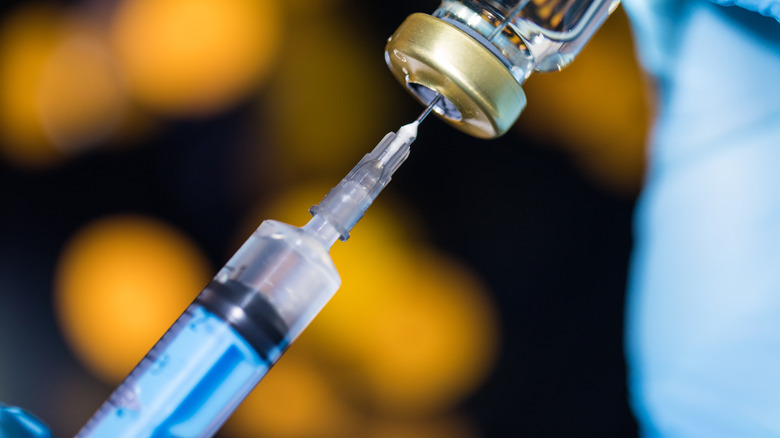This Is How Drinking Coffee Affects Your Blood Sugar
Whether you personally love it or hate it, there is no denying that coffee is one of most common ways for people to start their days. Countries around the world wake up to the smell of roasted beans percolating into cups of liquid caffeine that get people out the door and into their day.
And it doesn't take much to get people moving. On average Americans drink 16 ounces of coffee a day, according to the Mayo Clinic. This equates to roughly 280 milligrams of caffeine, a little over half the safe daily limit for a healthy adult. Of course this limit is lower for people with certain conditions, such as heart problems. WebMD says that drinking higher levels of coffee, specifically four or more cups a day, elevates a person's blood pressure. And while this isn't an issue for people with healthy hearts, it's bad news for people who already have heart problems or high blood pressure.
But what about high blood sugar? Researchers are pretty clear on how caffeine affects blood pressure, but the results are a little murkier when it comes to blood sugar. And that is bad news for people at risk for diabetes or who may already have the condition.
The research is murky
Medical News Today explains that plain coffee is not generally associated with a spike in blood sugar levels. Issues instead stem from the sugar, cream, and flavoring that people often add. As cut-and-dried as this answer appears, however, there are some underlying questions that researchers still have to answer.
A 2017 review published in Diabetes & Metabolic Syndrome found that studies on the interplay between caffeine and blood sugar had mixed results, specifically in the way caffeine affects insulin sensitivity. Some studies in the review found no connection between caffeine and insulin sensitivity. Other studies found that caffeine reduced insulin sensitivity, priming people for higher blood sugar levels. These mixed results usually lead doctors to suggest that diabetic coffee drinkers switch to decaf.
Confusing things even further is another 2017 review in Nutrition, this one evaluating studies that looked at coffee as a means of preventing Type 2 diabetes. The review found that coffee seemed to reduce the levels of various compounds in the test subjects' blood which can lead to a decreased diabetes risk. This could be because coffee contains more than caffeine. It also contains polyphenols, chromium, and even magnesium, which was shown in another 2017 Nutrition review to increase insulin sensitivity.
Researchers are still looking into the connection between caffeine, coffee as a whole, and blood sugar. Writing for the Mayo Clinic. Dr. M. Regina Castro, M.D., suggests each person approach the issue from their own experience until concrete answers are available.


